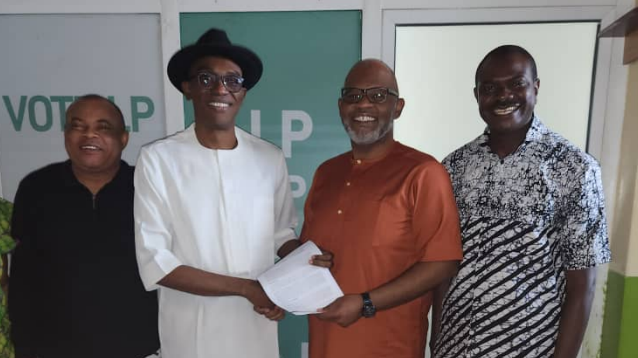The Labour Party’s decision to grant free nomination forms to female aspirants in the 2023 general elections has ignited discussions about inclusivity and representation in Nigerian politics. The party defends this move as a deliberate strategy to dismantle barriers faced by marginalized groups, particularly women, in the political arena. This affirmative action, they argue, is not just a symbolic gesture but a concrete step towards leveling the playing field and ensuring a more equitable distribution of power. By removing the financial hurdle of nomination fees, the Labour Party aimed to empower women to actively participate in the electoral process, leading to greater representation in decision-making roles.
The impact of this policy, according to the party, has been tangible. The election of Senator Ireti Kingibe, representing the Federal Capital Territory, is cited as a direct outcome of the free nomination forms initiative. Additionally, the party proudly points to the increased number of women holding strategic positions within its structure, including state party chairpersons in Edo, Rivers, and Lagos. These successes, the Labour Party contends, demonstrate the efficacy of the policy in fostering female leadership and bolstering their political participation. The party views this as a significant stride towards a more representative political landscape, reflecting the diversity of the Nigerian population.
Beyond the issue of gender representation, the Labour Party also emphasizes its commitment to youth inclusion. The establishment of a directorate for youth affairs, with plans to evolve it into a full-fledged institute for political education, underscores the party’s focus on nurturing future political leaders. This initiative, they explain, is designed to provide young people with the necessary training and mentorship to navigate the intricacies of politics and effectively contribute to nation-building. Similar to the policy for female aspirants, many young candidates were granted free or subsidized nomination forms, facilitating their entry into elective offices. The Labour Party believes that investing in youth participation is crucial for the long-term health and vibrancy of the democratic process.
The party’s commitment to inclusivity extends beyond gender and age to encompass individuals from less privileged backgrounds. By waiving nomination fees for financially disadvantaged candidates, the Labour Party sought to create opportunities for new entrants into the political space, regardless of their economic status. This, they assert, has opened doors for individuals who may have otherwise been excluded from participating in the political process due to financial constraints. The party highlights the success stories of several candidates who benefited from this policy and subsequently won elections, further validating their commitment to inclusivity and social equity in politics.
The Labour Party’s overarching goal, as articulated by its leadership, is to create a political environment that embraces diversity and reflects the varied perspectives of all Nigerians. They reaffirm their commitment to championing inclusiveness for women, youths, and Persons with Disabilities, with the expectation of further progress in the lead-up to the 2027 general elections. The establishment of a Labour Party Democratic Institute, focused on training members, agents, and aspiring politicians, is another step towards strengthening democratic values within the party and broadening political participation. This comprehensive approach, they argue, will contribute to a more robust and representative democracy in Nigeria.
External validation of the Labour Party’s inclusive policies has come from organizations like the International Republican Institute (IRI). IRI, which works to strengthen political participation for underrepresented groups, commends the party’s efforts. Their ongoing engagement with Nigerian political parties, including policy development workshops and advocacy initiatives, aligns with the Labour Party’s objectives. This external recognition strengthens the party’s position and reinforces the importance of inclusive policies in promoting a vibrant and representative democracy. The Labour Party believes that by continuing to prioritize these initiatives, they can create a political system that truly reflects the voices and aspirations of all Nigerians.














